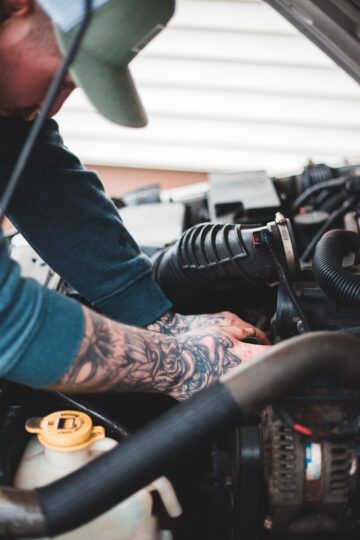Get to Know the Types of Washer Used in the Industry
We often see a metal chip placed between the bolt and the surface that is bolted. This round piece of metal has a hole in what is called a washer. One more thing that is often used together in binding several components is the washer and screw. Sometimes the washer is also often combined with bolts and nuts depending on the circumstances too.
Washer
A washer is often referred to as a ring in the world of road workshops. This ring is a closing ring that is used between bolts or nuts to the parts or components that are tied. Based on the function of the washer, there are several forms, namely:
- Flat Washers, distribute the binder load over a wider surface than bolts or nuts and prevent damage to the surface of the part being bonded.
- Spring Washer, is used to ensure that the bolt or nut is tight (not easily loose) on parts that receive vibrations or vibrations.
- Toothed Lock Washer, is used to ensure the bolt or nut is not easily loose due to vibration or vibration. This application is similar to the helical spring washer, toothed lock washers themselves are widely used in installing nuts in cable terminals.
What is the Function of the Washer?
We often see a metal chip placed between the bolt and the surface that is bolted. This round piece of metal has a hole in what is called a washer.
The function of the washer is to increase friction (friction) and spread the load. Another additional function is that if the surface to be bolted is not flat, the bolt will have a flat surface to grip. The friction force is directly proportional to the surface area so that the washer will make the bolt embedded better than if it did not use a washer.
Another function is load spread. Have you ever tried screwing on soft material like wood? After passing through the yield point of the material, the excess pressure will actually cause the bolts to damage the surface of the material and enter the material. Soft materials usually have a low yield point, so they are not sufficient to withstand loads.
Pressure is the force that is in an area. Thus, the force used to tighten the bolt will be spread over a larger area by means of a washer so that it does not pass through the yield point and does not damage the surface of the material.
Another type of washer that is often used is the ‘spring-lock type washer. This washer is like a small spring that will keep the bolt in place and immobile. Many things can make the bolt loose bit by bits such as vibration, damage to the thread, contraction, thermal expansion, and corrosion. This spring lock used to ensure immovable parts, for example on the surface of the body of ships and cars.
The way the ‘spring lock’ washer works is to provide a continuous spring force between the spring and the surface of the material. So the bolt that comes loose a little will feel a little ‘push’ from the spring to make sure the thread bond remains tight and strong so it can’t lose more or damage the thread.
Final Word
Get Your Flat Washers from Superior Washer & Gasket Corp. which provides the best engineering standard components from the USA, serves quickly, provides high-quality products and affordable prices.
Has manufacturing experience, with advanced equipment, senior professional and technical personnel, and advanced management system. Factory specializing in Washer production and can produce according to customer requirements.
For complete information about products, company profiles & other facilities, click the link on this blog.



